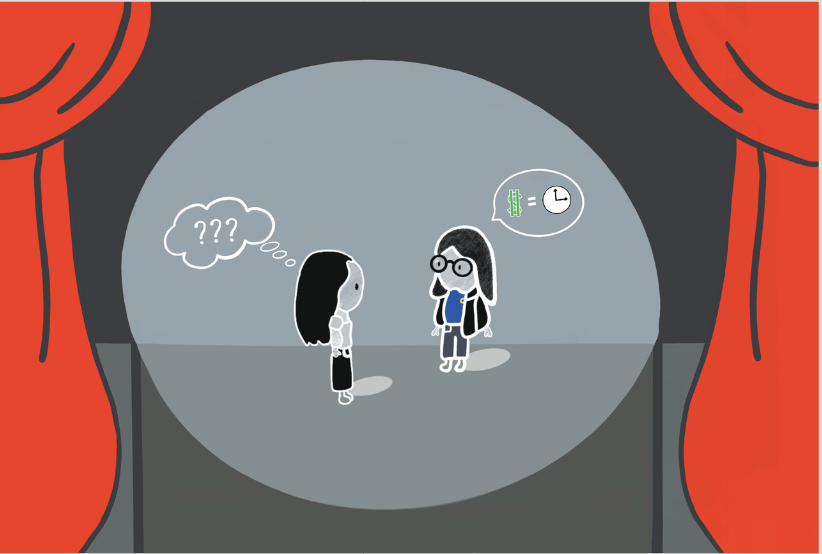By Evan Lu, Co-Editor-in-Chief
How much is an hour of your time worth?
To some clubs, the answer is $10. That’s right: In exchange for a monetary donation of 10 bucks to your local food drive, you can earn one hour of service time. Such opportunities to trade money for volunteer hours through service clubs are on the rise — the metastasis of a phenomenon that rests on shaky ethical foundations.
The premise of paid service hours is simple. Many students lead busy lives split between sports practices, music rehearsals, homework and more. Paid hours are targeted towards those students who are employed as part-time workers, depriving them of the time to earn hours outside of school. Instead, they are allowed to exchange their hard-earned wages from bussing tables, washing dishes or babysitting nephews for volunteer hours, simulating the time commitment and impact of traditional community service activities.
Despite this intention, paid hours pose obvious moral questions. On a fundamental level, paying for service hours seems suspect. In an imperfect and unjust world, time is the great equalizer — man or woman, child or adult, billionaire or blue-collar worker, all are humbled by the inevitable toll of the bell. However, by exchanging money for hours, one bypasses the limitations set by Mother Nature. Plain and simple, paid hours are a violation of the sanctity of service.
When drawing parallels to other domains, the inequity becomes blatant. Consider the world of gaming – in video games like Clash Royale or Overwatch, developers offer players the option to use real-world money to buy equipment, skills or simulated money within the game. This obvious grab for money from video game producers nearly always results in one outcome: Players with the financial means and will to succeed can overcome those with lighter wallets, even without the same investment of time or dedication. The game is rigged; money trumps skill. Volunteer hours follow the same principle.
In a more serious parallel, the justice system refuses to fall to this financial loophole. In addition to fines and incarceration, courts use mandatory community service as a form of public retribution that crosses socioeconomic barriers. Even with the flaws of the bail system that is employed before trial, once a felon is sentenced to community service, there is no alternative to spending the mandated time, no cheat code that activates with the writing of a check. The system holds offenders accountable regardless of the size of their purse, an ideal that the school extracurricular service system should follow too.
Under extreme circumstances, there are exemptions to be made. During the COVID-19 pandemic, paid volunteering thrived, justly so. As traditional volunteering activities shut down amidst quarantine regulations and social distancing guidelines, service-minded individuals turned to other methods for demonstrating their passion for community. Yet the proliferation of paid hours remained constant as life returned to normalcy, a continuity that warrants serious examination.
Admittedly, there are select advantages to paid service hours. Students who work jobs have little time for volunteering, and donations are an admirable alternative. Yet, in too many cases, it is overzealous parents who end up paying, bent on helping their kids accumulate service hours for gaming college admissions (though colleges equally value part-time jobs in the admissions process). On a grander scale, monetary donations are a form of philanthropy. Regardless of donors’ intentions, their donations carry a positive impact that helps real people. After all, money is money, no matter where it comes from. Yet again, in too many cases, the ends cannot justify the means. There are plentiful opportunities for outside donations to charity, but they have no place in school volunteering clubs that are founded on the basis of hours-based service.
Service organizations must reduce pay-to-play volunteering. There are other ways to serve your community — ones that don’t involve buying your way in with parent’s money.
Evan Lu can be reached at [email protected].






















































































